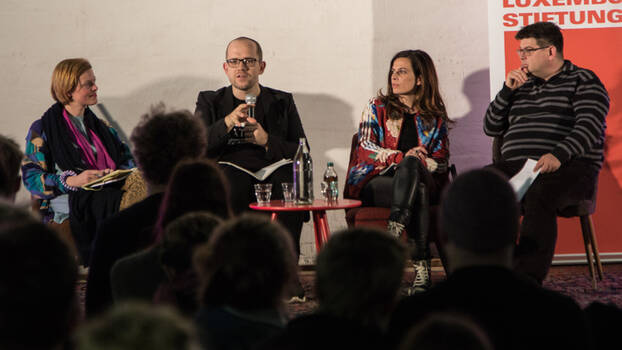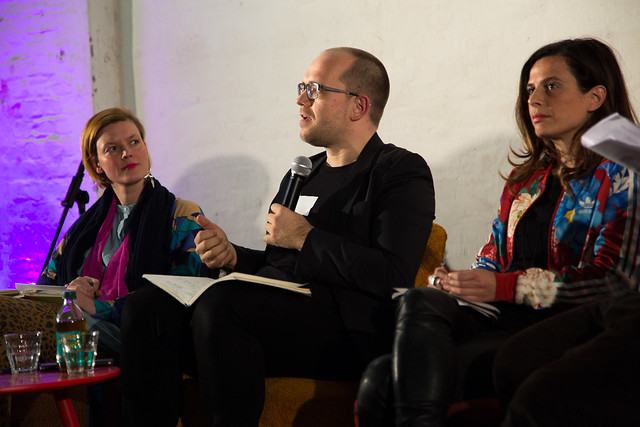
***Deutscher Text weiter unten***
Luxemburg Lecture by Evgeny Morozov with a commentary by Andrej Holm.
The term "smart" has long become a key word of our time. This label seems to be able to turn any object into consistently progressive light. "Smart Cities" - relentlessly praised by consulting firms, at technology fairs and conferences - evoke images of intelligent traffic lights, networked garbage cans and smoothly functioning public transport.
This picture of a smart city presents sustainability as its supreme principle, with highly optimized movement of the inhabitants and a guarantee of all encompassing security - all implemented with the help of an extensive sensor technology and data processing, which flexibly connects everything in real time.
The future of our cities
Despite heavy advertising money and glossy brochures, this narrative is showing cracks. It has been unmasked as a neoliberal-technocratic hegemony project. Citizens protest against video surveillance and facial recognition, against a privatization of urban infrastructures and an appropriation of public space. And yet, the big technology companies remain decisive players in social development and are commissioned with restructuring of services, neighborhoods and urban infrastructure worldwide. Google's affiliated company, Sidewalk Labs, has been recently commissioned by the City of Toronto to redevelop an entire neighborhood - Quayside.
It is a high time for a comprehensible counter proposal. How does "smartness" fit into the general set of neoliberal practices and austerity constraints that have curtailed cities' autonomy for decades? What role does the collection and processing of vast amounts of data play in the continued privatization of public infrastructures? What legislative options do local actors have to confront global financial markets, tight budgets and restrictive austerity policies? And how can both the disposal of our data and the necessary social infrastructures be brought under democratic control?
The event was also the presentation of the publication "Die smarte Stadt neu denken. Wie urbane Technologien demokratisiert werden können“ by Evgeny Morozov and Francesca Bria.
- Evgeny Morozov is one of the most prominent critics of digital capitalism and author of several books. He writes for various newspapers, among others are The New York Times, The Economist, The Guardian, and Frankfurter Allgemeine Zeitung. He is preoccupied with questions of how major technology companies are transforming society and democracy.
- Francesca Bria is Chief Technology and Digital Innovation Officer in the Municipal Government of Barcelona. Previously, she was coordinator of the D-Cent Project on Direct Democracy and Social Digital Currencies and has been adviser to the European Commission on the Future of the Internet and Smart City Policies. She has been active in social movements for many years and publishes in various media.
- Andrej Holm is a leftist city researcher and teaches at the Humboldt University Berlin. He is a member of the "Begleitkreises zum Stadtentwicklungsplan Wohnen 2030“ (Collateral Circle to the Urban Development Housing Plan 2030) of the Berlin Senate. He has been researching questions of gentrification, housing policy and urban politics for many years and is also politically active on all these topics.
- Katalin Gennburg is a city researcher and was 2016 directly elected for Die Linke in Treptow-Köpenick (Berlin) to the Berlin House of Representatives. She is Spokesperson for Urban Development, Smart City and Tourism.
